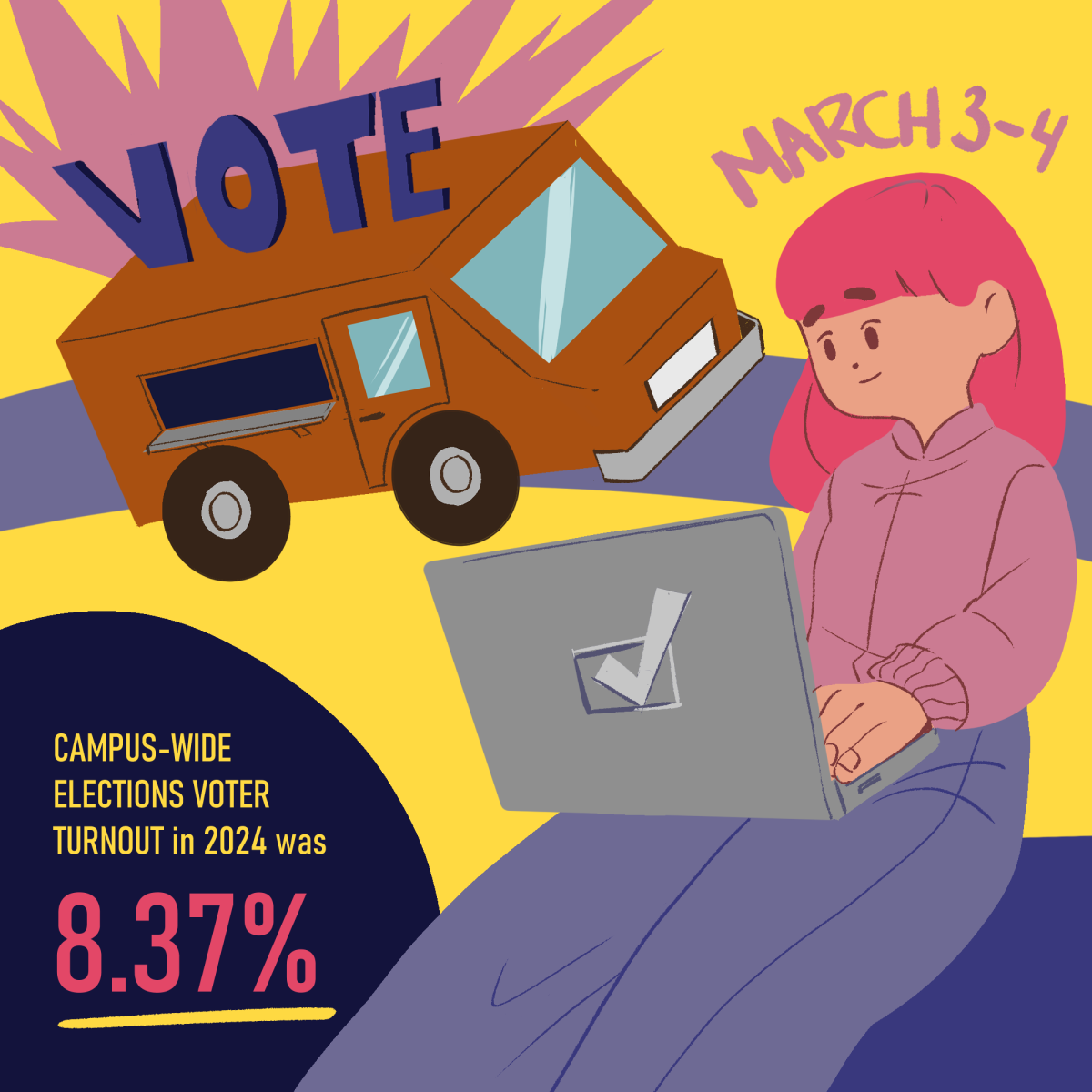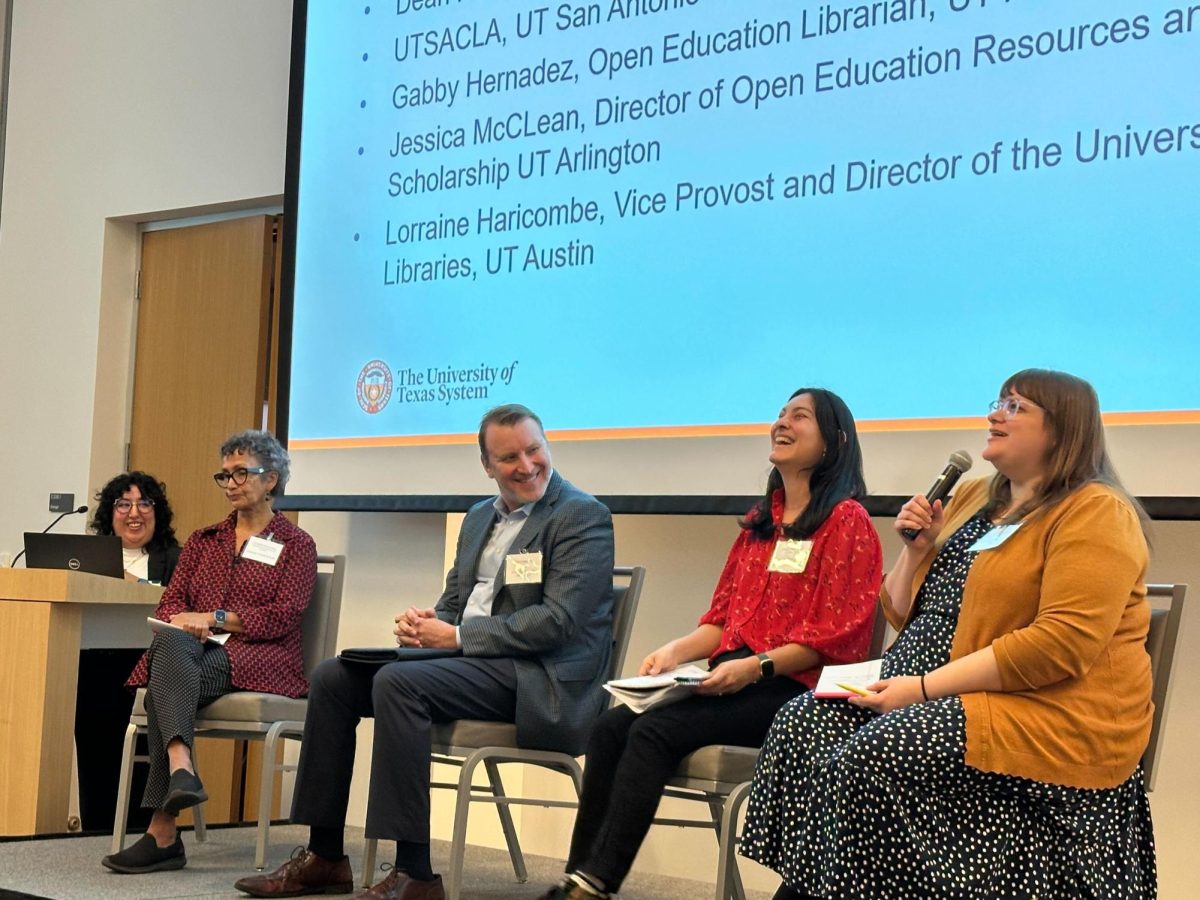UT will now extend benefits to employees with a same-sex spouse. UT spokeswoman Cindy Posey said the benefits available for same-sex married couples will be the same as for heterosexual married couples.
“They have the opportunity to cover their spouses for medical, dental, vision; they can make them beneficiaries for life insurance,” Posey said.
On Monday morning, a campus-wide email was sent to all University faculty regarding UT’s policy changes for same-sex couples. The email was sent in light of the Supreme Court ruling Friday to legalize same-sex marriage.
According to the email, all benefits-eligible UT-Austin employees, including retired employees, will be able to enroll in the plan Wednesday, July 1, provided they supply a valid marriage certificate.
Employees will have 31 days to enroll, and employees who enroll in the future must do so within 31 days of the marriage.
So far the process of policy transition has been going smoothly, Posey said.
“There’s the work that you have to do to make that happen, with computer programs and forms … but there’s been no problems,” Posey said.
Posey said she is unsure how long it will take before the policy transition is finalized.
“We’re offering all the services starting July 1, but as far as actually rewriting policy and all that, I don’t have a timeframe,” Posey said. “Everybody’s working on it as we speak, but I have no idea how long until it will take.”
Before June 26, Texas did not recognize domestic partnerships, marriage, or civil unions between individuals of the same gender, and the University did not offer benefits for same-sex couples.
Jason Roberts, Slavic and Eurasian studies graduate student and assistant instructor, said the email was a good sign.
“It’s hard enough to get a job in academia, but finding two jobs at one institution or in one city is understandably even harder,” Roberts said of him and his partner, both employed by UT. “There are a number of possibilities that can result from that. One of them is that half of the couple ends up not working in their field in order to stay together, in which case the insurance benefits, which are now extended, are absolutely crucial. The other possibility is that as a legally married couple, considerations for espousal hire become possible.”
Roberts, who lives with his partner, said he is currently enrolled as a graduate student, which made it harder to find a job at UT.
“An institution does not hire its own graduates,” Roberts said. “But with espousal hire, it at least becomes possible to waive that prohibition and consider the graduate on his or her merits. And because [my partner and I] met here, and he is a professor and I am a student, that would be me in this instance.”
According to the email, the UT System Office of Employee Benefits is going through a similar change. The UT System also plans to amend its policies by the July 1 deadline, but acknowledged that if it does not happen on time then affected individuals will be given a separate, special opportunity to enroll.
“It impacts our life going forward, where before we were thinking, ‘Either we’re going to have to live apart for some undetermined period of time or we’re going to have to try to land jobs together at an institution in a different state,’” Roberts said. “But now that won’t necessarily be the case.”
Roberts said before the Supreme Court ruling Friday there was no discernible way for him and his partner to be able to keep their jobs and still stay together.
“It changes everything,” Roberts said. “We’ve been holding our breath. I was just talking to him about this, the big challenge, the idea of marriage, and whether to do it sooner and in anticipation of the legal benefits and the social recognition.”





















